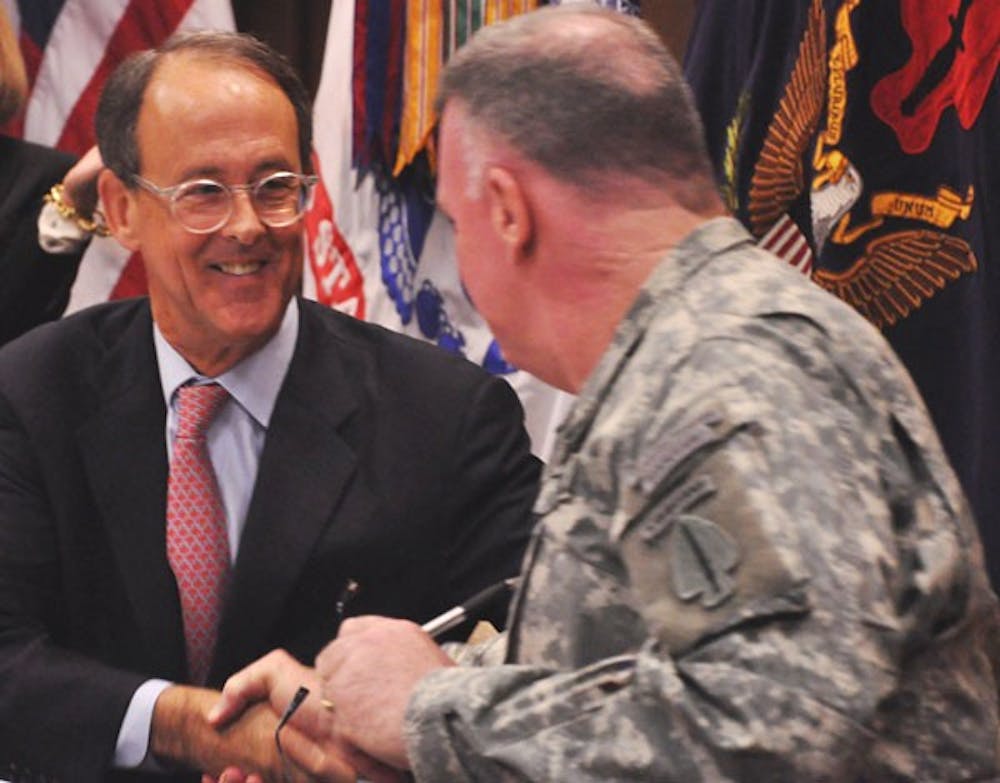A formal partnership between the UNC system and U.S. Army Special Operations Command made so much sense to both parties that it seemed silly to delay it.
Only a year after Special Operations Command first approached the UNC system, the two institutions signed an agreement that established the partnership.
“This is an event that I personally thought would take much longer to pass,” said Lt. Gen. John Mulholland Jr., commanding general of Special Operations Command,, who brought the idea to the UNC-system after observing a class at the UNC Kenan-Flagler Business School on military logistics.
“Our staff and leaders have slashed through things.”
The two have worked together for years, but the system’s administration will now direct Special Operations Command to the campuses with the resources to help them the most.
As the state with the fourth-largest military population, meeting the needs of the military means meeting the needs of the state — the mandate of UNC Tomorrow, UNC-system President Erskine Bowles said.
The UNC-Chapel Hill School of Medicine and Special Operations Command partnership, which provides civilian training to combat medics, was continually held up by speakers as an example of the idea’s potential.
“We have only scratched the surface of what is possible,” Bowles said.
The partnership will come at no additional cost to central administration, and Special Operations Command will reimburse schools for expenditures on classes, programs and resources.
A top priority is collaborating on language instruction. Through the command’s program, soldiers only learn basic comprehension, not the technical competence that comes with an academic course, Mulholland said.
“Generals come and go, and chancellors and presidents and boards come and go,” said board Chairwoman Hannah Gage.
“This process and relationship will continue. You have the stability so this can become larger.”
Contact the State & National Editor at stntdesk@unc.edu.
UNC system, Army tout partnership’s potential

UNC-system President Erskine Bowles, left, and Lt. Gen. John Mulholland Jr. signed an agreement Thursday.



